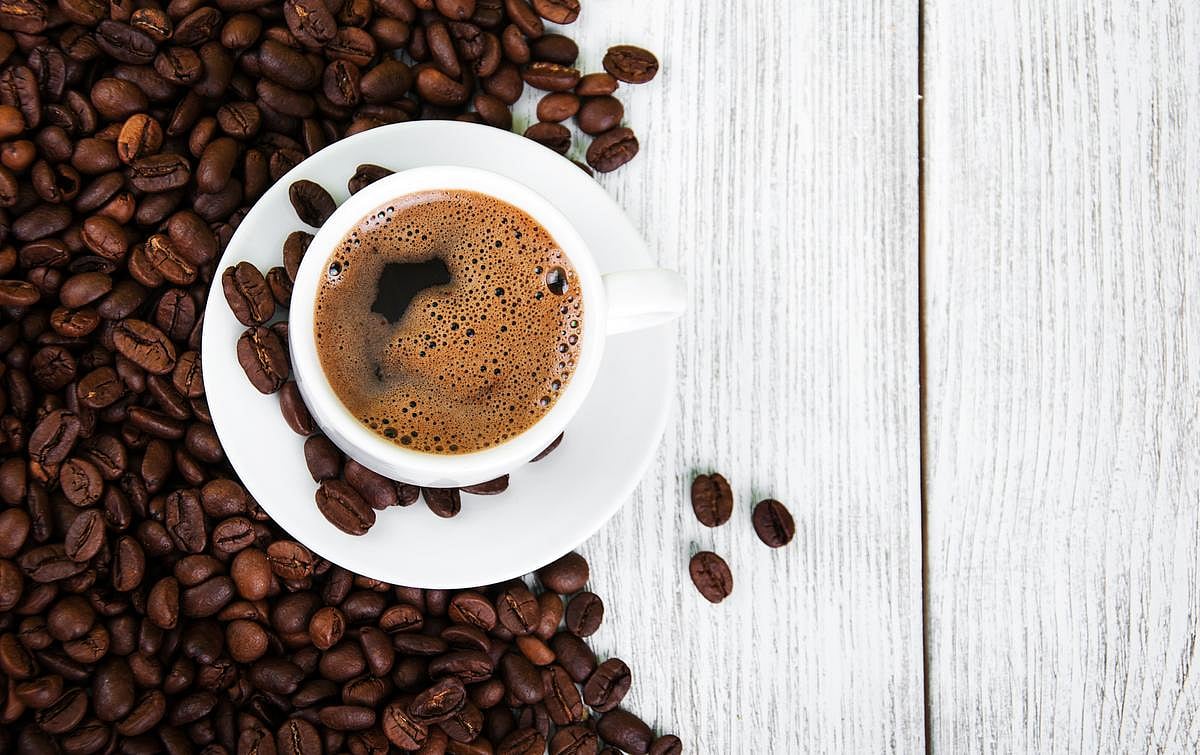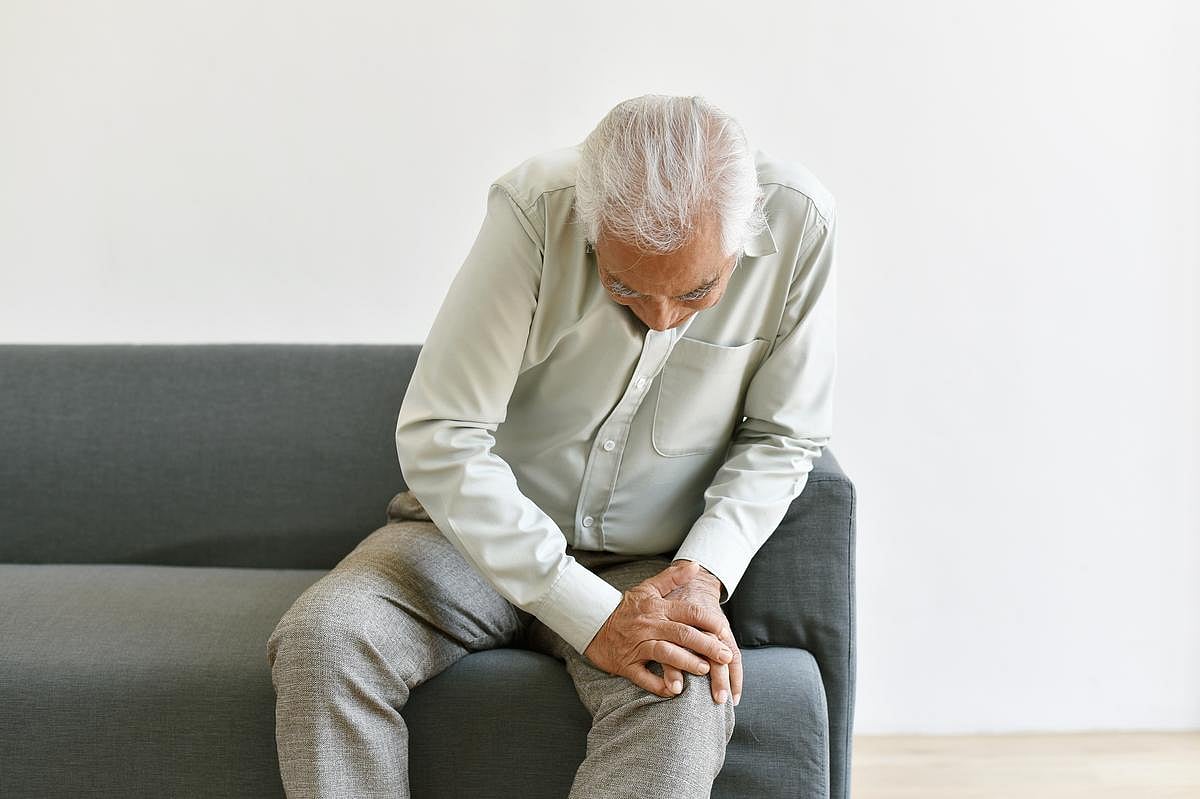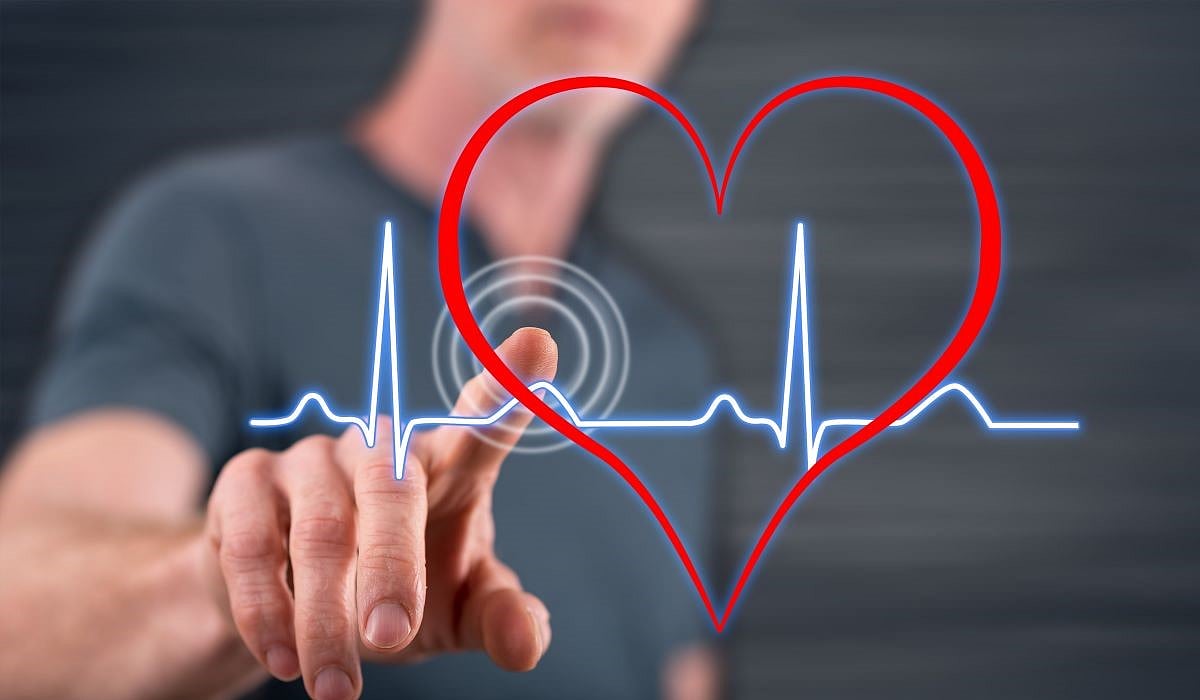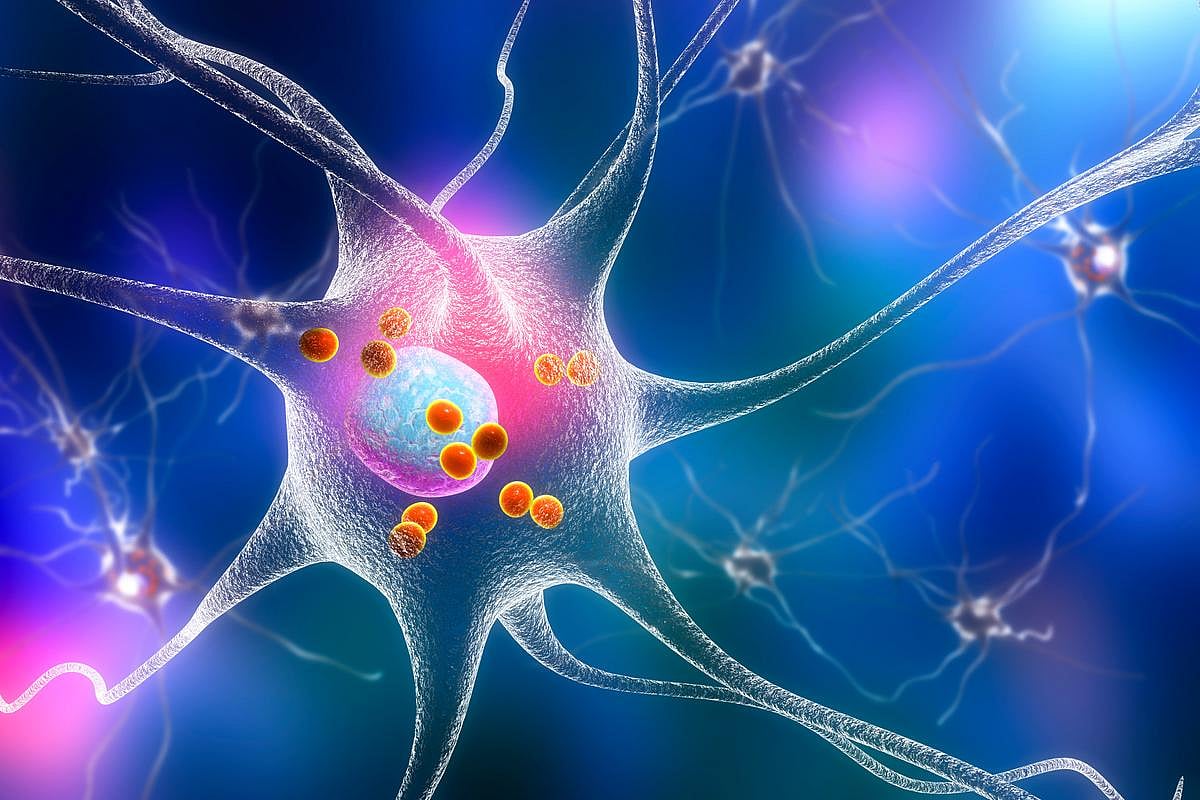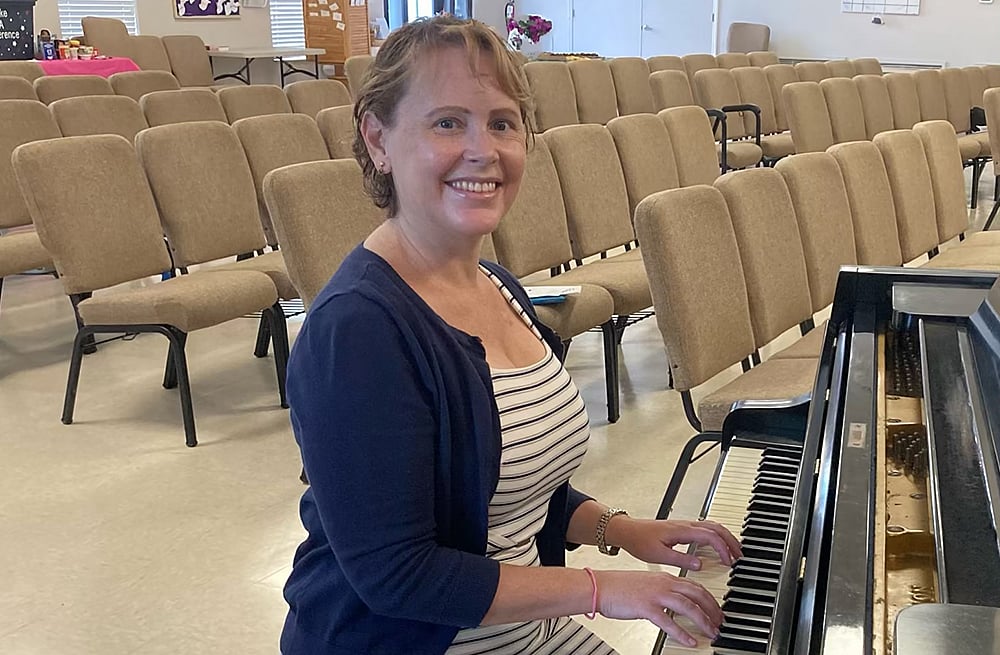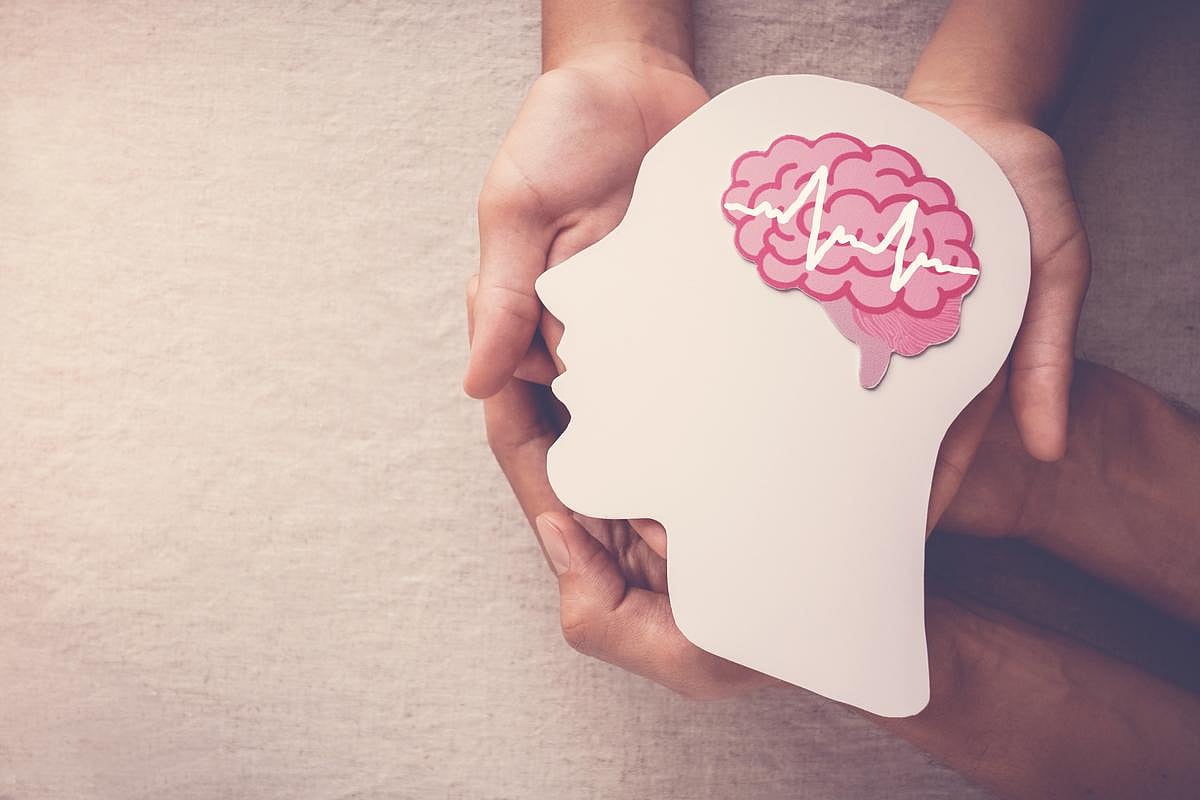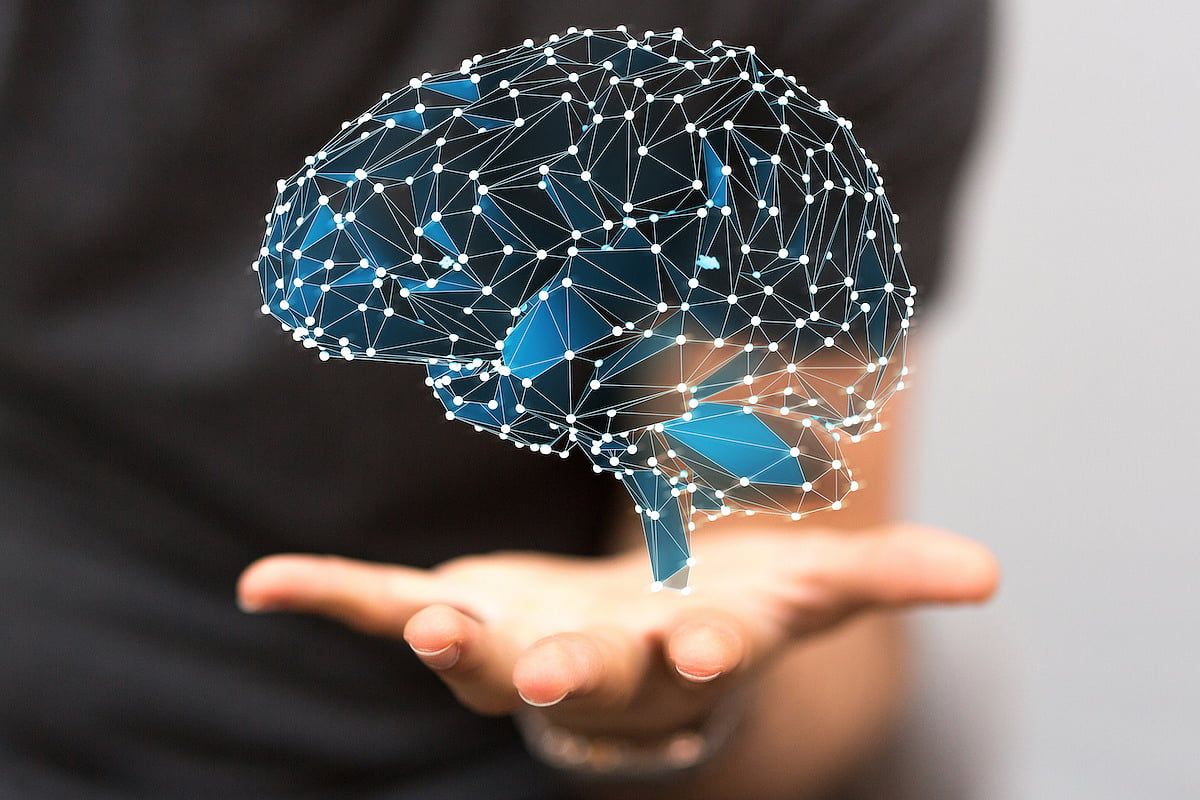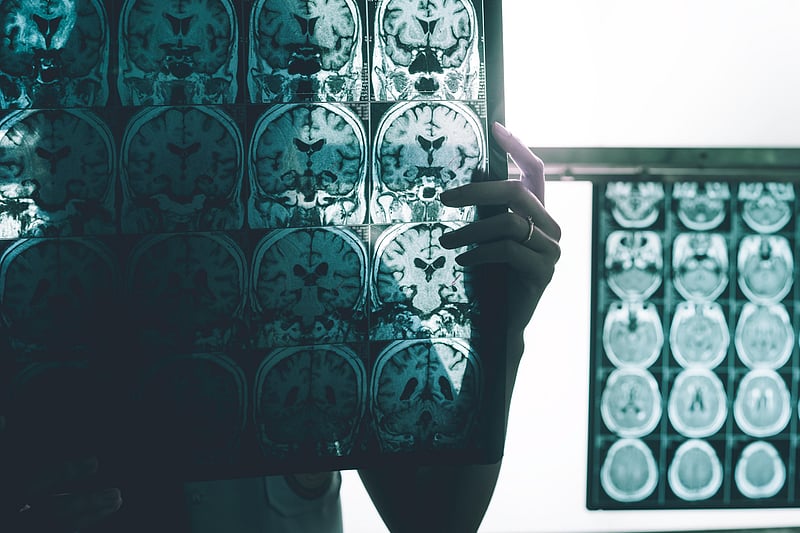Get Healthy!
Results for search "Memory Problems".
Health Videos - 9
Health News Results - 92
Babies and toddlers are sponges, incessantly soaking up lessons from the world around them.
So why, then, can’t adults remember specific events from their earliest moments of childhood?
A new study indicates that memories of baby experiences might remain, lurking in the deepest recesses of the mind, and adults simply aren’t capable of accessing them.
Researchers fo...
- Dennis Thompson HealthDay Reporter
- |
- March 21, 2025
- |
- Full Page
Heavy weed use appears to dull the brains of young adults, particularly affecting their short-term working memory, a new study suggests.
MRI scans showed less brain activation in heavy tokers performing tasks that tested their ability to temporarily hold a limited amount of information at the ready for immediate mental use, according to results published Jan. 28 in
People with post-traumatic stress disorder (PTSD) are plagued by unwanted and distressing memories over which they have little to no control.
Doctors now think they understand why PTSD patients and others aren’t able to keep troubling memories at bay.
Sleep deprivation appears to interfere...
- Dennis Thompson HealthDay Reporter
- |
- January 14, 2025
- |
- Full Page
Coffee provides a quick morning boost, but it might also protect the brain health of people with a common heart rhythm disorder.
A study published recently in the Journal of the American H...
- Dennis Thompson HealthDay Reporter
- |
- December 23, 2024
- |
- Full Page
Want to give your brain a boost for tomorrow?
Get in a little pulse-pounding exercise today, a new study shows.
In a finding that suggests the benefits of exercise may linger longer than believed, researchers discovered that middle-aged adults and seniors perform better on ...
- Dennis Thompson HealthDay Reporter
- |
- December 11, 2024
- |
- Full Page
Four years of hormone replacement therapy to help women deal with menopausal symptoms causes no harm to the brain, even over the long term, new research shows.
"In the present study, approximately 10 years after 48 months of early menopausal therapy... the cognitive performance of women randomized to [hormone replacement therapy] did not differ from those randomized to placebo," concluded...
- Ernie Mundell HealthDay Reporter
- |
- November 22, 2024
- |
- Full Page
Having achy, painful joints isn't just a physical woe: Coupled with depression, it could also degrade an older person's brain function over time.
That's the conclusion of a study of almost 5,000 older Britons tracked for 12 years. People who had both chronic joint pain and depression tended to perform worse on cognitive tests, especially tests focused on memory skills.
“Both p...
- Ernie Mundell HealthDay Reporter
- |
- November 21, 2024
- |
- Full Page
People using blood thinners to control their heart rhythm shouldn't expect the medications to head off thinking declines as well, new research suggests.
The study, presented Saturday at a meeting of the American Heart Association in Chicago, is the first lar...
- Carole Tanzer Miller HealthDay Reporter
- |
- November 19, 2024
- |
- Full Page
Asthma is associated with memory problems in children, a new study has found.
Further, the early onset of asthma might worsen potential memory deficits in kids, researchers found.
This is the first study to make such a connection, researchers said.
“This study underscores the importance of ...
- Dennis Thompson HealthDay Reporter
- |
- November 11, 2024
- |
- Full Page
Memories are constantly adapting in the brain over time, dynamically updating as people encounter new information and fresh experiences.
Researchers think they’ve figured out the brain mechanism that drives this memory integration, based on a study of lab mice.
The discovery improves understanding of mental illnesses like post-traumatic stress disorder (PTSD), in which memorie...
- Dennis Thompson HealthDay Reporter
- |
- November 7, 2024
- |
- Full Page
In a small, preliminary study, piano lessons provided to cancer patients undergoing chemotherapy appeared to help them maintain brain health.
"There were a lot of outside stressors contributing to my mood, but piano practice and going to lessons were always something good and positive that I would look forward to, no matter what else was happening,” said Robin Hesselink, an enrolle...
- Ernie Mundell HealthDay Reporter
- |
- October 8, 2024
- |
- Full Page
A new, large study from France underscores the link between adult hearing loss and dementia.
"Given the major burden of cognitive decline and the absence of curative treatment, identifying modifiable risk factors is of importance," a team led by Dr. Baptiste Grenier, of the Université Paris Cité, wrote Oct. 1 in the journal...
- Carole Tanzer Miller HealthDay Reporter
- |
- October 4, 2024
- |
- Full Page
Antidepressants have the potential to improve memory and thinking skills, a new study suggests.
Some patients experienced a boost on brain tests after taking the SSRI antidepressant escitalopram (Lexapro), researchers report.
<...- Dennis Thompson HealthDay Reporter
- |
- September 23, 2024
- |
- Full Page
Depression and memory declines may be closely linked in older people, new research suggests.
"Our study shows that the relationship between depression and poor memory cuts both ways, with depressive symptoms preceding memory decline and memory decline linked to subsequent depressive symptoms," said senior study author Dr. Dorina Cada...
- Ernie Mundell HealthDay Reporter
- |
- June 12, 2024
- |
- Full Page
Jobs that challenge your mind could help your brain age more gracefully, a new study suggests.
The harder your brain works on the job, the less likely you are to have memory and thinking problems later in life, researchers reported April 17 in the journal Neurology.
"We examined the demands of various jobs and found that cognitive stimulation at work during different stage...
- Dennis Thompson HealthDay Reporter
- |
- April 18, 2024
- |
- Full Page
Sleep apnea could have detrimental effects on the brain, causing memory or thinking problems, a new study suggests.
People suffering from sleep apnea are about 50% more likely to also report having memory or thinking problems, compared to those without sleep apnea, researchers say.
"These findings highlight the importance of early screening for sleep apnea,"said researcher
No one's brain is as sharp at 60 as it was at 20.
However, new research supports the notion that folk's brains can make subtle adjustments with age to compensate for that decline.
A team of British researchers has found more evidence that as the mind ages, it sometimes recruits help from certain brain regions to make up for deficits elsewhere.
This does not happen for everyone...
- Ernie Mundell HealthDay Reporter
- |
- February 8, 2024
- |
- Full Page
Dementia seems like a disorder that's always haunted the human race.
But this form of severe memory loss is actually a modern malady, if classical Greek and Roman physicians are to be believed.
A new analysis of ancient Greek and Roman medical texts suggests that dementia was extremely rare 2,000 to 2,500 years ago, in the time of Aristotle, Galen and Pliny the Elder.
The new ...
- Dennis Thompson HealthDay Reporter
- |
- February 2, 2024
- |
- Full Page
People who get poor sleep in their 30s and 40s might be more likely to develop memory and thinking problems a decade later, a new study warns.
Those who had the most disrupted sleep in early adulthood had more than double the odds of poor thinking performance when tested in middle age, compared to those who had the best sleep, researchers found.
At the same time, researchers found n...
- Dennis Thompson HealthDay Reporter
- |
- January 4, 2024
- |
- Full Page
There are so many New Year's resolutions from which to choose, but an important one could be to schedule a memory screening, experts say.
Memory screenings consist of a series of questions that gauge memory and brain function, according to the Alzheimer's Foundation of America (AFA).
These regular screenings are an important way to detect memory problems early, and should be part of...
- Dennis Thompson HealthDay Reporter
- |
- January 3, 2024
- |
- Full Page
For the growing number of American seniors who live alone, having a beloved dog or cat by their side could help them maintain a healthy brain.
New research on more than 7,900 people averaging 66 years of age found that those who lived alone were able to stave off losses in memory and thinking if they had a pet.
Pet ownership didn't seem to affect the cognition of older folks who liv...
- Ernie Mundell HealthDay Reporter
- |
- December 27, 2023
- |
- Full Page
Regular exercise appears to enhance and even grow crucial areas of the human brain, new research using MRI scans shows.
It's long been known that physical activity is a brain-booster, but this international study illustrates ways this could be happening.
"With comprehensive imaging scans, our study underscores the interconnected synergy between the body and the brain," said study se...
- Ernie Mundell HealthDay Reporter
- |
- December 14, 2023
- |
- Full Page
Wasabi, that green condiment that spices up your sushi, may possess memory-boosting powers, a new Japanese study suggests.
Lead researcher Rui Nouchi, an associate professor at Tohoku University's Institute of Development, Aging and Cancer, said the strength of the results surprised the team, despite th...
- Robin Foster HealthDay Reporter
- |
- December 5, 2023
- |
- Full Page
People with epilepsy suffer quicker declines in thinking than people without the brain disorder, particularly if they also have risk factors like high blood pressure or diabetes, a new study finds.
The difference was significant: Over the course of the 14-year study, those with epilepsy experienced a 65% to 70% faster decline in memory and thinking skills.
On top of that, having ris...
- Dennis Thompson HealthDay Reporter
- |
- December 5, 2023
- |
- Full Page
Your thinking and memory skills may take a hit decades after recovering from a concussion, a new study indicates.
Scientists who studied male twins, from an average age of 67, found that earlier concussions were tied to lower scores on tests of thinking and memory. These men also had a more rapid decline in their cognitive skills -- skills needed for reasoning and the acquisition of...
- Cara Murez HealthDay Reporter
- |
- September 7, 2023
- |
- Full Page
Yoga is known for its benefits to both the mind and body. And a gentle form of yoga may be an ideal early intervention technique for older women at risk of Alzheimer's disease, new research suggests.
In a small study involving kundalini yoga, participants reported that its stress-relieving effects translated to more efficient memory.
"Women tend to practice yoga more readily t...
- Sarah D. Collins HealthDay Reporter
- |
- August 3, 2023
- |
- Full Page
Black Americans are less likely to be seen at a memory clinic than their white peers. So too are folks from neighborhoods that are poor and lack educational and job opportunities, according to a new study.
That could mean later diagnosis and treatment for dementias like Alzheimer's disease.
The research, published online Aug. 2 in Neurology, involved data from more than 4...
- Cara Murez HealthDay Reporter
- |
- August 3, 2023
- |
- Full Page
Children with autism have well-known difficulties with social interactions, but a new study is highlighting another area where they can struggle: memory.
Researchers found that compared with their peers, school-age kids with autism showed more difficulty managing memory tasks. They often had a hard time remembering faces -- something seen in past studies -- but also in recalling words and...
- Amy Norton HealthDay Reporter
- |
- July 11, 2023
- |
- Full Page
Erectile dysfunction (ED) has been tied to an increased risk of diabetes, high blood pressure and heart disease. Now, research suggests that erectile woes during late middle age may also be linked to a man's chances of developing memory issues later on.
"Because subtle changes in erectile function were related to memory decline, our results suggest that neglecting this aspect of sexu...
- Denise Mann HealthDay Reporter
- |
- June 2, 2023
- |
- Full Page
You'll likely lose some of your memory and thinking abilities as you age, but nutrients called flavanols might help thwart that decline, a new study suggests.
Not getting enough flavanols -- natural compounds found in fruits, vegetables and even chocolate -- could be driving that age-related memory loss, researchers say.
This research is the pinnacle of 1...
- Cara Murez HealthDay Reporter
- |
- May 30, 2023
- |
- Full Page
Scientists report that brain scans of long COVID patients show abnormal activity in areas related to memory.
The scan results validate the concerns of these patients, who feel like they're experiencing fatigue, trouble concentrating and memory issues, even though their scores on thinking tests don't show it.
"We were able to show that even though they were able to do the task -- the...
- Cara Murez HealthDay Reporter
- |
- May 1, 2023
- |
- Full Page
It's long been thought that working out helps a person stay sharp, but a new review argues there's little solid scientific evidence for the mental benefits of physical exercise.
Individual clinical trial results have tended to support the idea that regular exercise helps maintain brain health.
But a combined review of 109 trials involving more than 11,000 healthy folks found evidenc...
- Dennis Thompson HealthDay Reporter
- |
- March 27, 2023
- |
- Full Page
The list of symptoms that can strike long COVID sufferers has just gotten a little longer, and a little more mysterious: Researchers are reporting a case of "face blindness" related to the syndrome.
The condition, known medically as prosopagnosia, causes a very specific impairment: trouble discerning one face from another. Even the once-familiar face of a loved one might as well be a stra...
- Amy Norton HealthDay Reporter
- |
- March 16, 2023
- |
- Full Page
Alzheimer's is one of the most common and serious diseases of aging, yet many older adults with memory issues are not telling their doctors about their struggles.
That's according to a new report from the Alzheimer's Association that focuses on whether doctors and patients are discussing early warning signs of the disease. The answer, often, is no.
In focus group discussions, the as...
- Amy Norton HealthDay Reporter
- |
- March 15, 2023
- |
- Full Page
Memory loss is the most common symptom associated with Alzheimer's disease -- the terrifying prospect of slowly forgetting yourself and everything around you.
But people who exhibit memory loss early on in their dementia actually have a slower rate of decline than those who develop other symptoms earlier, a
- Dennis Thompson HealthDay Reporter
- |
- January 25, 2023
- |
- Full Page
Many conditions cause memory issues, and early detection is essential for effective treatment, according to a national Alzheimer's disease organization.
The Alzheimer's Foundation of America (AFA) encourages people to get a memory screening in the new year.
The foundation offers free, confidential virtual memory screenings. It doesn't set a minimum age and there are no insurance pr...
- Cara Murez HealthDay Reporter
- |
- January 11, 2023
- |
- Full Page
If you need another reason to quit smoking, researchers have one: your mid-life brain health.
Not only does smoking harm lung and heart health, but it increases the chances of middle-aged memory loss and confusion, a new study shows.
The likelihood of mental ("cognitive") decline is lower for those who quit -- even if they did so only recently, according to researchers at Ohio Stat...
- Cara Murez HealthDay Reporter
- |
- December 27, 2022
- |
- Full Page
Menopause and the years before it may make you feel like you're losing your mind.
Some of those feelings are changes that occur naturally in this stage of life, but other factors contribute, too, according to the North American Menopause Society (NAMS), which offered tips to achieve some peace.
Changes in hormones are...
- Cara Murez HealthDay Reporter
- |
- December 21, 2022
- |
- Full Page
Exercise and mindfulness are known for their health benefits, but a new study found that didn't extend to boosting memory or thinking skills in healthy seniors.
That doesn't mean these activities wouldn't be beneficial for memory if practiced for a longer period of time or in adults with impairments, the researchers noted, just that there were not apparent benefits during the study.
<...- Cara Murez HealthDay Reporter
- |
- December 13, 2022
- |
- Full Page
Regular aerobic exercise improves blood flow to the brain, which should help keep seniors sharper as they age, a new trial has revealed.
At least a half-hour of power walking or jogging four to five times a week promoted better blood flow in and out of the brain among a small group of older adults, said study co-author
Signing up for "food stamps" might help lower-income seniors preserve their mental capabilities, a new U.S. study suggests.
Researchers found that eligible older adults who used the government's Supplemental Nutrition Assistance Program (SNAP) -- commonly called food stamps -- had two fewer years of mental d...
- Cara Murez HealthDay Reporter
- |
- November 10, 2022
- |
- Full Page
Older adults looking to slow down memory loss might find some help in a classic brain-teaser: the crossword puzzle.
That's the suggestion of a small study that followed older adults with mild cognitive impairment -- problems with memory and thinking that may progress to dementia over time. Researchers found that those randomly assigned to do crossword puzzles for 18 months showed a small ...
- Amy Norton HealthDay Reporter
- |
- November 2, 2022
- |
- Full Page
Early detection of memory issues is important.
It can help rule in or out a variety of health issues, including vitamin deficiency, thyroid condition, sleep apnea, urinary tract infection and, of course, Alzheimer's disease and related dementias.
The Alzheimer's Foundation of America suggests getting scr...
- Cara Murez HealthDay Reporter
- |
- November 1, 2022
- |
- Full Page
It's a question many have asked: How are memories made to last?
Now, a new study claims they are solidified during sleep through the interplay of two distinct brain regions.
Memories are set in the brain as it cycles between slow-wave and rapid eye movement (REM) sleep, which happens about five times a night, re...
- Dennis Thompson HealthDay Reporter
- |
- October 25, 2022
- |
- Full Page
One in 10 older Americans has dementia, and twice as many have mild mental impairment, a new study finds.
As the nation's population grows older, the burden on families and society is likely to grow, and minorities will be affected most, experts say.
"As the population in the U.S. ages, it is projected that there will be more cases of cognitive impairment, unless and until effective...
- Steven Reinberg HealthDay Reporter
- |
- October 21, 2022
- |
- Full Page
Researchers have discovered another clue as to how some older people stay sharp as a tack into their 80s and beyond: Their brain cells are really big.
The study focused on what scientists have dubbed "super-agers" -- a select group of elderly adults who have the memory skills of people decades younger.
The researchers found that in a memory-related area of the brain, super-agers had...
- Amy Norton HealthDay Reporter
- |
- October 3, 2022
- |
- Full Page
As Americans age, millions end up struggling with dementia or some level of memory impairment and diminished capacity to think clearly and make decisions.
Yet a new study says that despite such serious challenges, many seniors continue to manage their own finances, often alone, and despite a...
- Alan Mozes HealthDay Reporter
- |
- September 19, 2022
- |
- Full Page
Seniors, there's good news and bad from a new study of mental health. The brain-centered research confirms that mental skills do decline with age -- but it also finds many people over 60 having better psychological health than folks in their 20s.
"We wanted to better understand the interplay between cognition and mental health across aging, and whether they rely on activation of similar o...
- HealthDay Reporter
- By Cara Murez HealthDay Reporter
- |
- September 19, 2022
- |
- Full Page










.jpg?w=1920&h=1080&mode=crop&crop=focalpoint)


